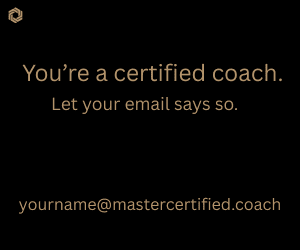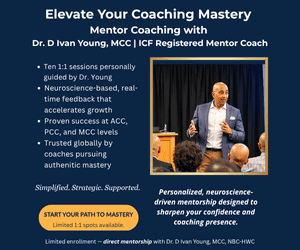We have all experienced a disruption in the flow of our lives that has shifted us into a season of uncertainty. We find ourselves in a space where we must reorient, learn, rise and transform. This is liminal space. In liminal space, we must summon the courage and create the opportunity to convert knowledge into understanding. In this space, we have the feeling of being just on the verge of something. This is called the “crossing over” space – where we have left something behind, yet not fully crossed into something else. This is a phase of life where we listen deeply to what our life is speaking and uncover answers with new meaning. The only roadmap we have to guide us is our internal compass. The definition of liminal space is the time between what was and what’s next. It is a season of waiting, and not knowing. It is a season of transition.
How we frame transition shapes what it becomes. There is no date stamp. Author William Bridges stated, “It isn’t the changes that do us in, it’s the transitions. Change is not the same as transition. Change is external, transition is internal.” Transition begins with an ending, and the process follows. There are many types or transitions we face, whether one at a time or multiple simultaneously: career (layoff/firing), family (marriage, parenting, divorce), community (a move to a new city), self-concept (feeling stuck, insecurity), life stage (retirement, empty-nesting, death), or organizational change. These transitions can be chosen, imposed or avoided. Regardless, transition holds discomfort. In these times, we can’t anticipate what we don’t know, but we must make a choice to trust in what we can’t see or understand. This is how we navigate life transitions.
Transition Phases
Working through transitions occurs in non-consecutive phases: ending, waiting, navigating, reconciling, asking, choosing, managing conflict and learning.
In the ending phase, we learn acceptance and how to let go. We identify behavioral patterns tied to familiar roles and reframe belief structures. In the waiting phase, we learn adaptability, here and now problem solving, and healthy coping. The navigating phase requires patience and resilience because the route may be longer than expected. In the reconciliation phase, we confront self-doubts that contradict our plans. We identify transition deficits like constantly searching for something “out there,” rather than searching inwardly. In the asking phase, we question what we truly need to create the life we want. In the Choosing phase, we notice opportunities to engage in something new and strive to overcome past narratives. It is an invitation to freedom and an opportunity to create decision filters that guide our choices. In the managing conflict phase, we resist the urge to blame, self-protect, or be overcome by the truths about ourselves that transition exposes. In the learning phase, we open our mind to bring discovery, fresh ideas and real transformation. We get to author a new story of life. We learn agency and discover purpose. We take what we have learned and add it to our toolbox for the next season of disruption. We seize the moment to make the unimaginable possible.
Emotional Phases of Transition
Effectively navigating each phase of disruptive transition means effectively navigating emotional phases, as well. Don’t underestimate the toll our emotions take in transition. Technically, our brain doesn’t know the difference between a physical wound and a soul wound. We each have different proclivities in our emotional response. The emotional phases are denial, resistance, commitment, and exploration. When we deny transition is happening, there is a sense of disbelief, withdrawal, and the tendency to work as usual. When we resist transition, we tend to focus on the personal impact and our productivity declines. When we commit to honor the transition, we accept the disruption, truthfully engage the loss, and focus on the future. We ask ourselves, “what was my part in getting here?” What do I still have that will enable the journey? When we explore options in transition, we begin to ask ourselves, what will be meaningful? Now what? How can I define a new pathway?
Life Transition is assured, but how we navigate is up to us. We can learn to navigate successfully with the right tools for the journey.
© All Rights Reserved
Disclaimer
The views and opinions expressed in guest posts featured on this blog are those of the author and do not necessarily reflect the opinions and views of the International Coach Federation (ICF). The publication of a guest post on the ICF Blog does not equate to an ICF endorsement or guarantee of the products or services provided by the author.
Additionally, for the purpose of full disclosure and as a disclaimer of liability, this content was possibly generated using the assistance of an AI program. Its contents, either in whole or in part, have been reviewed and revised by a human. Nevertheless, the reader/user is responsible for verifying the information presented and should not rely upon this article or post as providing any specific professional advice or counsel. Its contents are provided “as is,” and ICF makes no representations or warranties as to its accuracy or completeness and to the fullest extent permitted by applicable law specifically disclaims any and all liability for any damages or injuries resulting from use of or reliance thereupon.
Authors
Post Type
Blog
Audience Type
Coach Educators, Experienced Coaches, External Coaches, ICF Chapter Leaders, Internal Coaches, New Coaches, Professional Coaches, Team and Group Coaches
Topic
Business Development, Discover - Your Coaching Career, Personal Growth
Related Posts
The Power of Active Listening in Meaningful Coaching: Why Active Listening is the Most Essential Coaching Competency
Of all the foundational coaching competencies identified by the International Coaching Federation…
Allyship in Action: Coaching as a Catalyst for Change
Allyship is often framed as a value or an intention. In practice,…
Grace Under Fire: Building Stress Resilience for Coaches and High Achievers
There’s a unique kind of pressure that lives at the intersection of…







